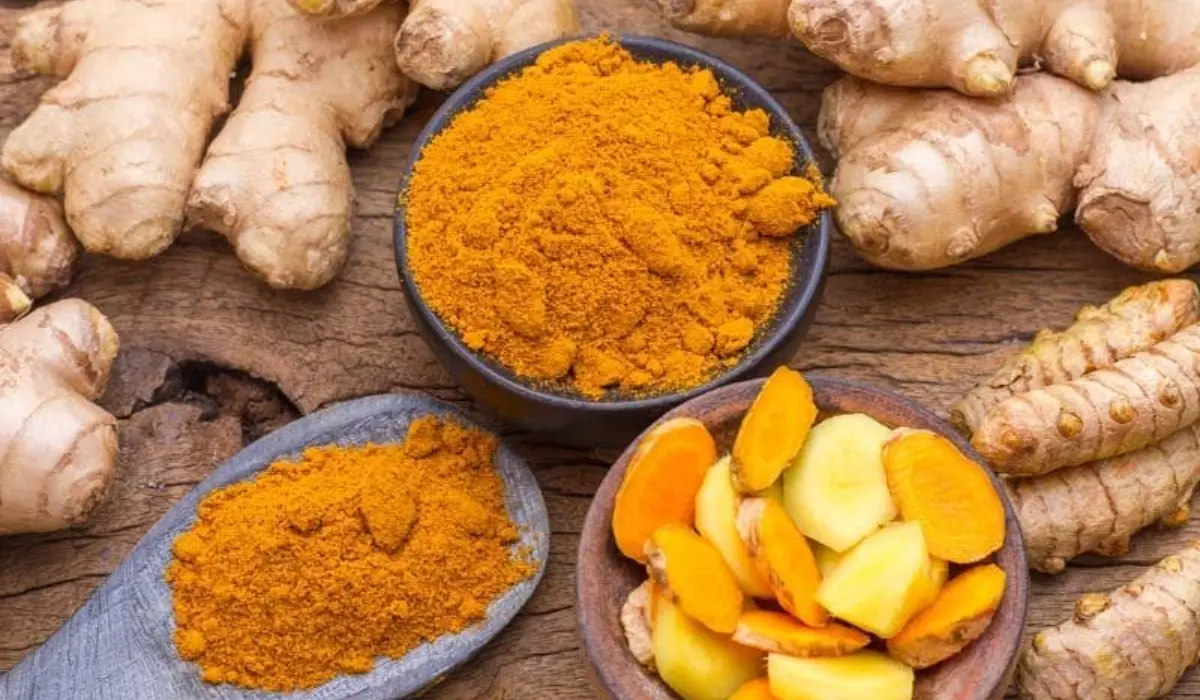Ginger and turmeric are two popular spices that have been used for their health benefits for thousands of years. Both contain potent anti-inflammatory and antioxidant compounds and can be consumed in various ways. This article will explore what ginger and turmeric are, their key health benefits, how to consume them, and potential side effects.
What Are Ginger And Turmeric?

Ginger comes from the root of the Zingiber officinale plant, while turmeric comes from the Curcuma longa plant. Both are members of the Zingiberaceae family and have a long history of use in traditional medicine systems like Ayurveda.
Ginger has a peppery, sharp taste and is used as a flavoring for dishes and teas. Turmeric has an earthy, pungent flavor and bright orange color. It is a staple spice in South Asian and Middle Eastern cuisine. Both provide powerful health benefits.
Benefits Of Taking Turmeric And Ginger
Some of the top evidence-based benefits of consuming ginger and turmeric include:
Reducing inflammation – The compounds gingerol and curcumin have potent anti-inflammatory effects.
Relieving joint and muscle pain – Helps reduce pain associated with arthritis, injuries, and cramps.
Easing nausea and vomiting – Ginger is commonly used to settle an upset stomach.
Supporting digestive health – Can improve digestion, bloating, gas, and IBS symptoms.
Protecting the heart – This may lower cholesterol, blood pressure, and risk of blood clots.
Boosting immunity – Contains antimicrobial and infection-fighting properties.
Potentially fighting cancer – Early research shows promise against certain cancers.
Improving brain function – Linked to better cognition and potential neuroprotective effects.
How To Use Ginger And Turmeric
There are many ways to consume ginger and turmeric to gain their benefits:
- Add fresh or powdered forms to curries, soups, stir-fries, dressings
- Juice fresh ginger and turmeric or make tea from grated roots
- Take supplements in capsule, tincture, or extract forms
- Make turmeric lattes or add to smoothies with ginger
- Use topically as a paste to reduce joint/muscle pain
Start with small amounts and moderate consumption to avoid side effects. Combining them can increase their potency.
Potential Side Effects
When consumed in normal amounts in food, ginger, and turmeric are very safe for most people. But some potential side effects can occur if they are taken in high supplemental doses:
- May cause nausea, diarrhea, dizziness, and headache in some individuals
- Increased risk of bleeding when combined with blood thinners
- Could negatively interact with certain medications like NSAIDs
- Should be avoided in large amounts during pregnancy
- May exacerbate gallbladder issues or stomach ulcers
Check with your doctor before taking ginger or turmeric supplements. Moderation is key when consuming them regularly.
Conclusion
Ginger and turmeric are versatile spices that provide a variety of health benefits from reducing inflammation and pain to enhancing digestion and immunity. Their long history of use in traditional medicine is backed up by a growing body of scientific research.
Consuming moderate amounts of ginger and turmeric as part of a balanced diet, in tea, or as spices can promote overall health and well-being. Just be cautious with supplemental doses and consult your physician.

